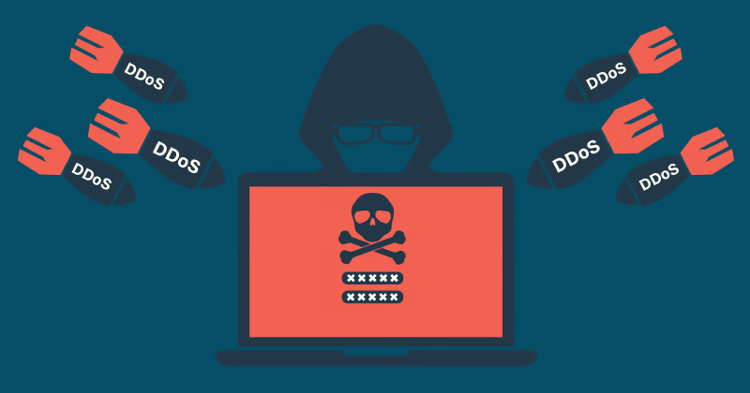In today’s digital age, websites are crucial to the success of any business. They act as a company’s virtual storefront, enabling customers to access services, products, and information around the clock. However, this constant connectivity also makes websites a prime target for cybercriminals, especially through DDoS (Distributed Denial of Service) attacks.
In this post, we’ll explain what DDoS attacks are, the significant dangers they pose—particularly to businesses relying on single-server infrastructures—and how services like Cloudflare provide a robust solution for protecting against these attacks.
What is a DDoS Attack?
A DDoS attack is an attempt to make an online service unavailable by overwhelming it with traffic from multiple sources. This type of cyberattack floods a server or network with an immense number of requests, forcing the target to slow down or crash completely. Unlike a simple denial-of-service (DoS) attack, which typically originates from a single source, a DDoS attack is coordinated from numerous machines (often hijacked devices) working together.
The goal is simple: disrupt the website’s normal traffic flow and prevent legitimate users from accessing the service, which can lead to a loss of revenue, customer trust, and brand reputation.
Why Single-Server Websites Are Particularly Vulnerable
Many companies host their websites on a single server, often without any additional protective layers such as a proxy or content delivery network (CDN). This configuration leaves the server’s real IP address exposed, making it an easy target for attackers. Once attackers know your server’s IP, they can:
- Directly target your server with a flood of malicious traffic.
- Overwhelm the server’s resources like bandwidth, memory, and CPU, causing the website to crash or become unusable.
- Take down the entire website by overloading the single point of failure (the server), leaving the site offline for hours or even days.
For businesses dependent on their online presence—e-commerce stores, service providers, or any company with customer-facing services—such downtime can be disastrous.
Dangers of DDoS Attacks on Single-Server Websites
- Revenue Loss: If your site is down, customers can’t access your services or products, resulting in lost sales and potential long-term revenue damage.
- Reputation Damage: Extended downtime or a slow website frustrates users, erodes trust, and can lead to negative reviews.
- Operational Disruption: Internal teams may be distracted by the emergency, and resources might be diverted to manage the crisis instead of focusing on core business activities.
- Security Risks: A DDoS attack could serve as a smokescreen for more nefarious activities, such as data theft or a breach of sensitive company information.
Using Cloudflare To Protect Against DDoS Attacks
By integrating your website with Cloudflare’s services, you get access to a powerful set of tools that help prevent DDoS attacks—without the need for extensive in-house expertise or resources.
One of the primary advantages of Cloudflare’s DDoS protection is the use of a proxy DNS, which hides your server’s real IP address from the public. Here’s how it works:
- IP Masking: Cloudflare’s proxy DNS routes all traffic through their global network of servers, which means attackers never see your server’s actual IP. This makes it significantly harder for them to target your infrastructure directly.
- Traffic Filtering: Cloudflare can distinguish between legitimate user traffic and malicious requests. If a surge in traffic is detected that resembles a DDoS attack, Cloudflare automatically blocks or absorbs the attack before it reaches your server.
- Load Distribution: By leveraging Cloudflare’s global CDN, traffic is distributed across a large number of data centers. This reduces the load on your origin server, ensuring that even if there’s a spike in traffic, your site remains up and running.
- Scalability: Cloudflare handles massive volumes of traffic and offers protection against even the most sophisticated DDoS attacks. This allows your site to stay online regardless of the attack’s size or intensity.
Why Cloudflare Takes the Complexity Out of DDoS Protection
Without Cloudflare or similar services, setting up and maintaining comprehensive DDoS protection is a highly complex and resource-intensive task. You would need to:
- Implement firewalls and rate-limiting mechanisms to manage incoming traffic.
- Constantly monitor traffic patterns to detect unusual spikes.
- Purchase additional server resources to handle unexpected loads during an attack.
This website is currently using Cloudflare to hide its real IP!

